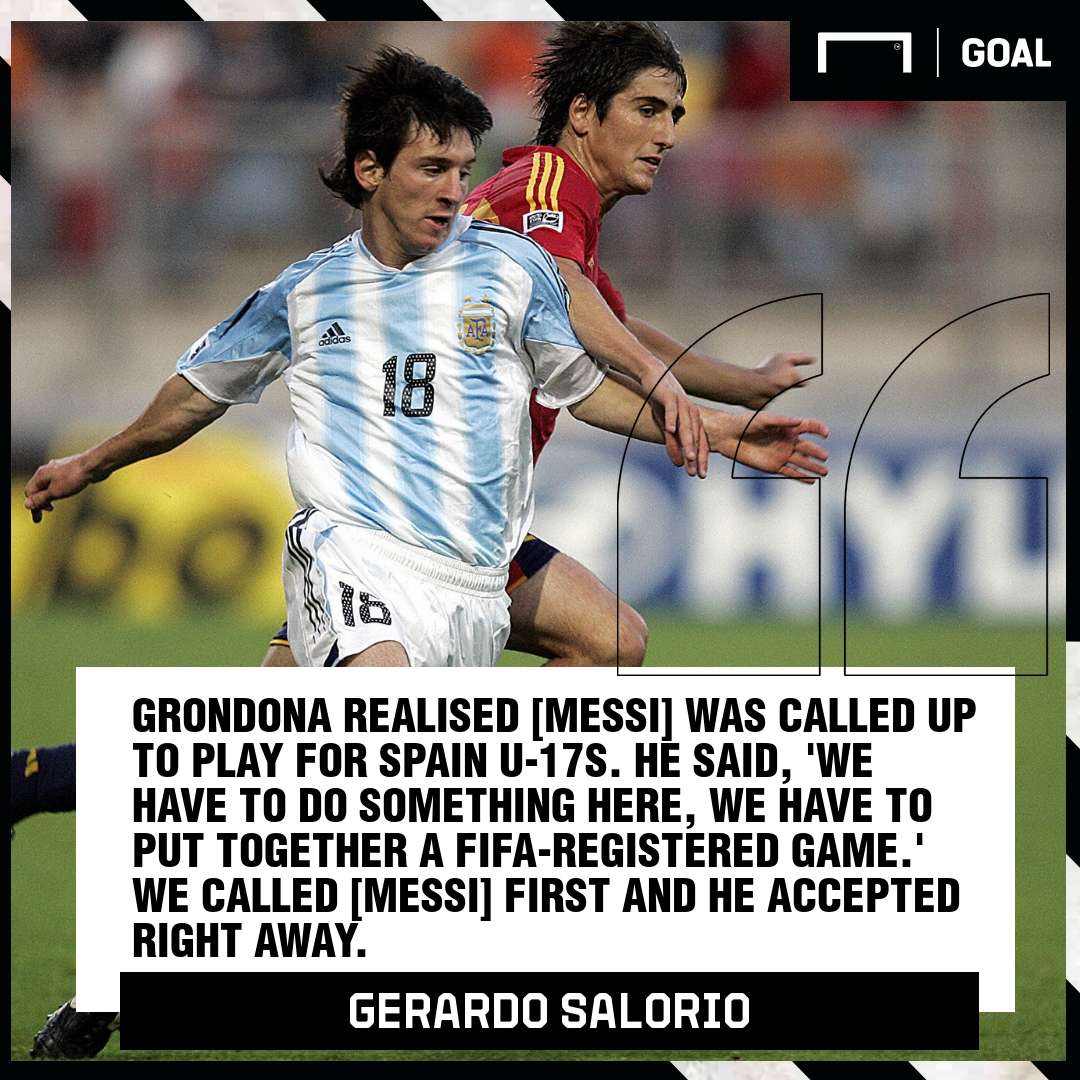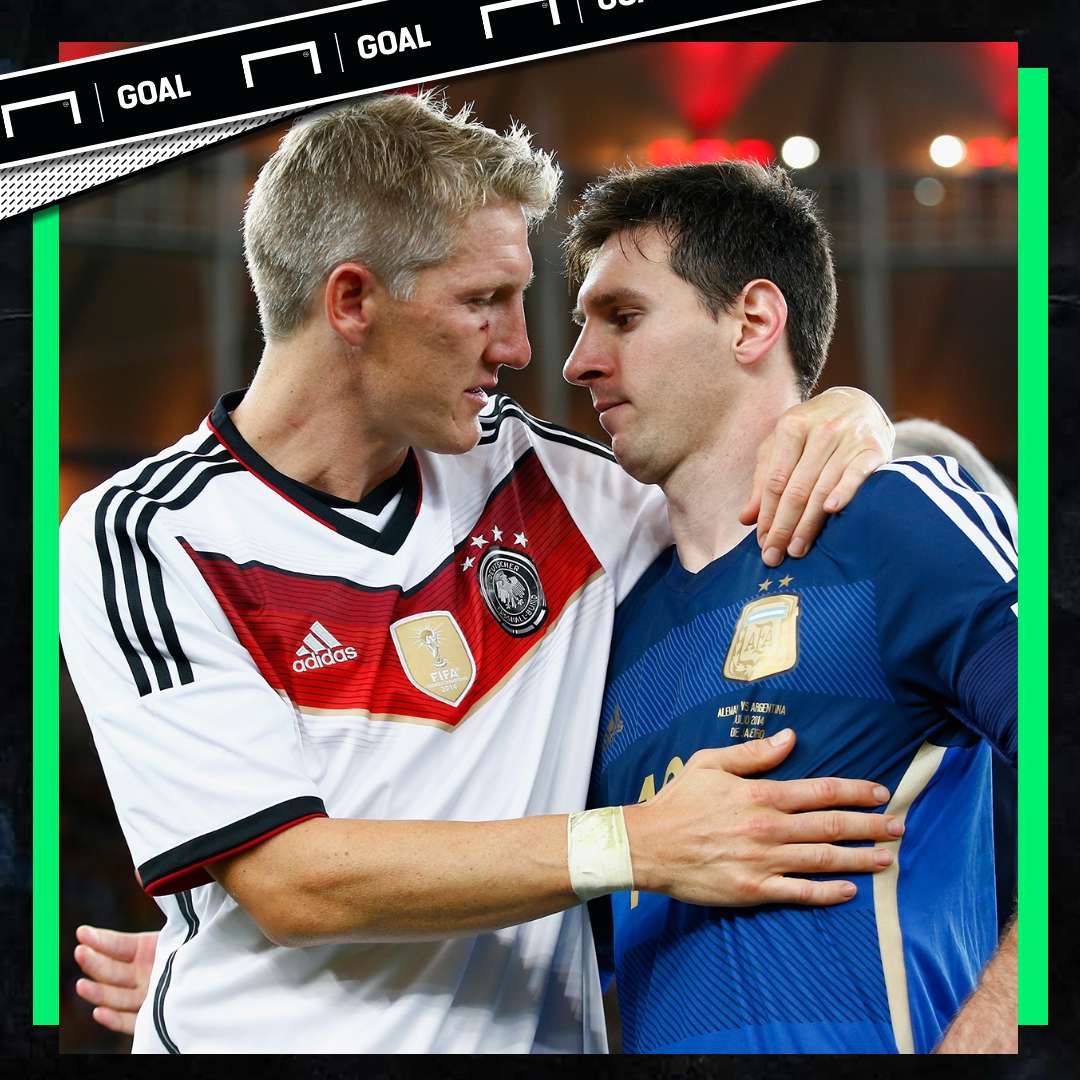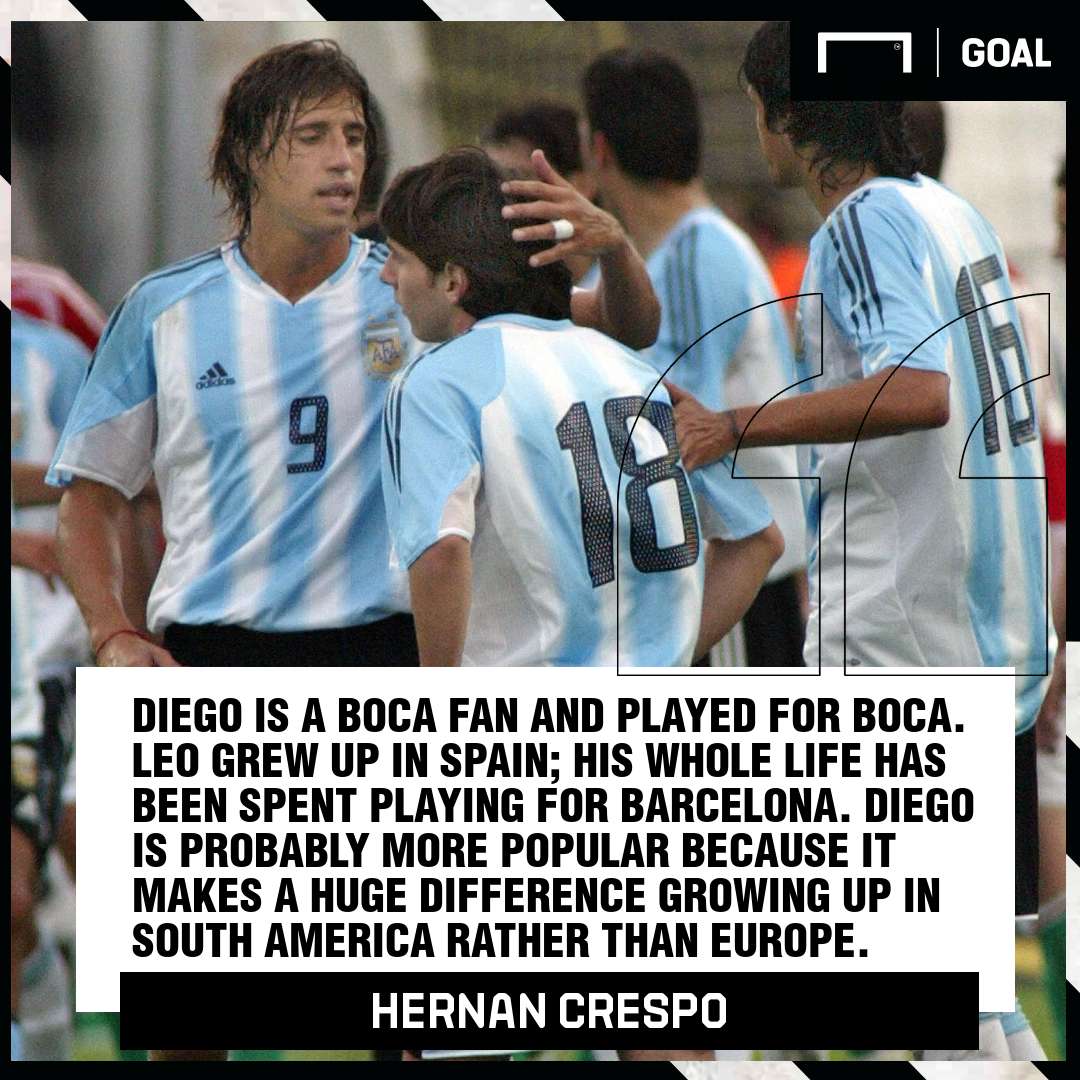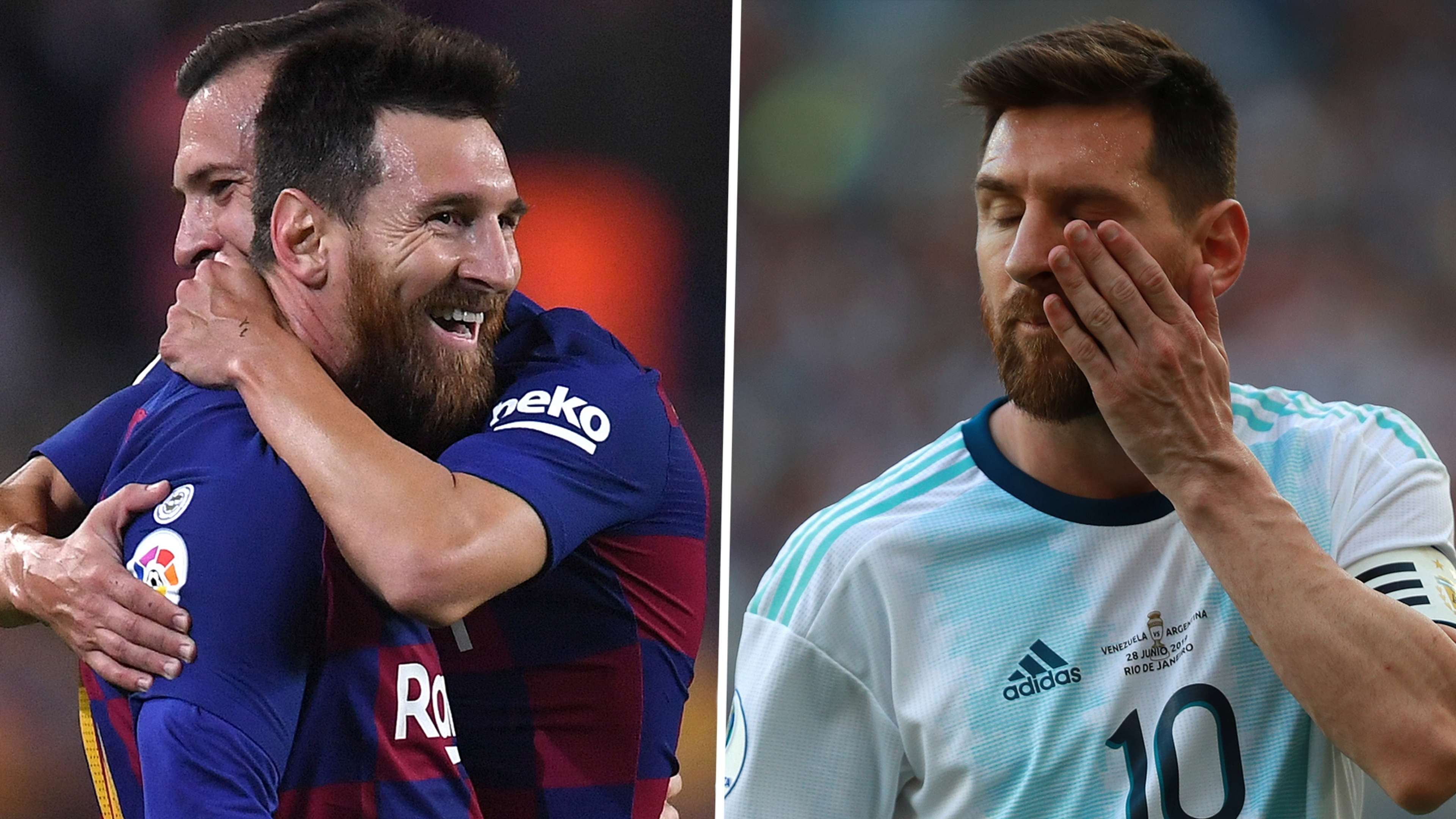The name may be unfamiliar but Osvaldo Cook claims to hold a unique achievement in Argentine football.
The lifelong Argentinos Juniors fan, like thousands of other supporters – perhaps millions when counting every individual that swears they were present – was in the stands on October 20, 1976 when a 16-year-old Diego Maradona made his professional bow.
Cook, however, was also witness to another historic, if rather less celebrated, occasion.
In 2004, he was one of the few to turn up at Argentinos' La Paternal home for a hastily arranged Argentina Under-20s fixture against Paraguay, a match that would have been forgotten long ago but for one fact: it was Lionel Messi's first appearance in the Albiceleste shirt.
While it may be a stretch to draw parallels between that inauspicious debut and Messi's international career over the subsequent decade and a half, the circumstances surrounding the match do shed a certain amount of light on the Barcelona wizard's rather tetchy, at times lukewarm, relationship with his home nation.
That game, after all, was only necessary because Messi was already flirting with a different football destiny.
The youngster, who five days prior to his Argentina bow had celebrated his 17th birthday, had also been courted by Spain, who had attempted to include the forward in their Under-17 World Cup squad the previous year alongside the likes of Cesc Fabregas, David Silva and Javi Garcia, and were once more looking to turn his head.
So unknown was the teenager to Argentina authorities that their first petition to Barcelona requesting his presence in the national team, in April 2004, was sent on behalf of "Leonel Mecci". Two months later, though, they would not be denied.
Then-AFA president Julio Grondona and U-20 coach Hugo Tocalli were finally convinced to safeguard the phenomenon's future when a short VHS video of Messi's talents landed on the Argentine football chief's desk.
 Getty/Goal
Getty/Goal
“Tocalli saw the video, he mentioned it to me,” recalled former Argentine assistant Gerardo Salorio to La Nacion . “We took it to Grondona, who with lightning speed realised [Messi] was called up to play for Spain U-17s.
“He said, 'We have to do something here. We have to put together a FIFA-registered game'. We called [Messi] first and he accepted right away.”
Such was the lack of interest in the fixture that, forced by FIFA regulations to charge an entrance fee, organisers asked spectators to bring a single piece of paper as a donation to Buenos Aires' Garrahan children's hospital.
“We saw the lights on [at the stadium], heard on the radio there was a game and turned up,” adds Cook. “We had no idea what we were coming to see and we ended up in a very important match.”
Messi came on in the second half and scored the seventh goal of an 8-0 thrashing. And the rest is history. Four World Cup finals, five Copa America finals, Olympic Games gold, 136 caps and 68 goals, four senior finals – and no major international trophies.
The oft-repeated assertion that Messi is ignored, even maligned, in his home nation is a fallacy.
While there certainly were unfavourable comparisons of his respective performances for Barca and the Albiceleste early on, in 2019 such comments are solely the reserve of sporting illiterates.
When it comes to the No.10, respect and admiration are almost universal sentiments in his home nation. In Rosario, the bustling port city where he was born and raised, the ubiquitous murals and tributes to his talents speak of a true local hero.
But it is equally true that he does not command the same type of hopeless adoration with which his every move is greeted in Barcelona; and which only Maradona, warts and all, can inspire in Argentina.
Memories of Messi in Albiceleste colours are tainted by disappointment.
 Getty/Goal
Getty/Goal
One can revel in Maradona's 'Goal of the Century' against England in 1986 because we know that days later Jorge Burruchaga will smash his shot past a despairing Harald Schumacher and it will be a beaming Diego with his hands on the World Cup trophy in the Estadio Azteca.
With Messi, though, those moments of brilliance are forever bitter-sweet.
As with the first meeting of Shakespeare's star-crossed lovers in 'Romeo and Juliet', where we know the pair are doomed to tragedy, the talisman's brilliance in Brazil 2014 will forever be associated with what followed, Rodrigo Palacio and Gonzalo Higuain's misses and heartbreak at the hands of Mario Gotze.
Maradona's glory became Argentina's joy; Messi's story just another case of so near, yet so far.
“Leo is very much loved, he is Argentina's top scorer,” Hernan Crespo, who starred during the time that passed between Maradona's international retirement in 1994 and Messi's emergence a decade later, explained to Cadena Ser in 2017.
“He was unlucky enough to lose three Copa America finals and one in the World Cup. Imagine if he'd managed to win them...”
 Getty/Goal
Getty/Goal
Would delivering World Cup glory in Qatar finally see Messi gain equal footing alongside his former coach in the affections of the Argentine public? Doubtful.
Part of Maradona's appeal is that, in spite of his infinite fame and riches, for many the current Gimnasia coach is still that curly-haired sprite from Villa Fiorito that made good.
Quick-tempered, opinionated and famously vulnerable to temptation, he is the epitome of the working-class kid who made good without forgetting his roots.
He belongs to a different, more open generation of footballers, the type one could still spot going down to the corner store for a pack of cigarettes, stalled at a red light on his way to visit an elderly aunt or stumbling out of a cabaret in the early hours of the morning following a big derby win.
Messi, too, is a product of his time, a species that, thanks to the proliferation of live sports broadcasts worldwide and social media never seems to be off our screens; but who, conversely, few outside of his family, his team-mates and his immediate social circle could claim to know to any convincing degree.
Crespo added: “Maradona is a declared Boca fan and played for Boca. Leo grew up in Spain; his whole life has been spent playing for Barcelona. Diego is probably more popular because it makes a huge difference growing up in South America rather than Europe.”
Messi's is a talent that was honed with its back turned to the Argentine public, cosseted in the hermetic surroundings of La Masia and introduced to just a few dozen spectators that frigid winter's evening in La Paternal.
He may well be the most outrageously gifted footballer ever to walk this planet, hitting heights with a consistency that even Maradona could only dream of, but achieving the same kind of veneration in Buenos Aires and beyond that his predecessor at No.10 boasts may prove a step too far even for Messi.




